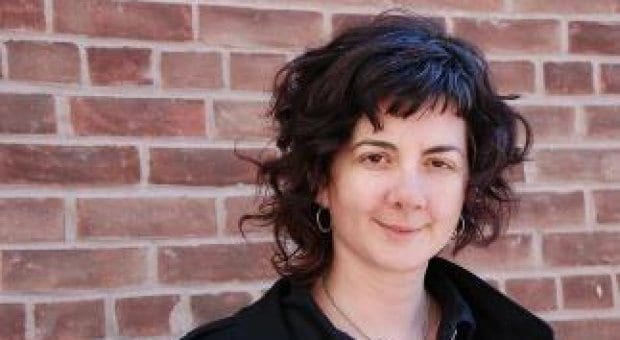Kathleen Mullen has been curating film festivals for 17 years. Her career began (as so many in the film world do) as a festival volunteer, in her case for Out on Screen and the Vancouver International Film Festival. She programmed shorts at the Toronto International Film Festival, spent five years as the director of programming at Inside Out, programmed in San Francisco, Boston and Provincetown, and two and a half years ago, after completing her MFA, she landed at Planet in Focus, the annual environmental film festival produced by the eponymously named environmental media arts organization.
Given Mullen’s distinctive yet broad curatorial experience and Planet in Focus’s 13-year commitment to presenting environmental issues on film, it’s no surprise that programming for the festival is mind-blowing. This year, Planet in Focus features 70 films — 33 of them Canadian — with a diverse selection of genres: animated, documentary, short and fictional features on a wide variety of topics such as food crises, social justice movements, migration, sustainability and renewable energy, underground urban rivers and, of course, our melting glaciers. As Mullen notes, many of these topics preoccupy purveyors of mainstream cinema as well. Just think of all the films that deal with epidemics, energy shortages and end of days, and you’ll see our precious Earth is on many minds. Xtra chatted with Mullen ahead of the festival’s opening.
Xtra: You’ve been a film festival programmer for almost two decades. Tell us what this job is like and what it takes to do it well.
Kathleen Mullen: It’s a lot of hard work. It’s not just watching films; it’s seeing if they fit in a program, what films fit together, whether the audience is going to like them, if it has something to say, if it’s aesthetically well made. Also, with programming there are a lot of other jobs, like overseeing marketing, outreach and administration. It is really like putting pieces of a puzzle together.
Programming for Planet in Focus has been a hugely rewarding experience. It’s confirmed my own awareness that I am not an isolated individual and that we as individuals actually have to look at our own behaviours, our own responsibilities.
Three years ago you completed Breathtaking, your own documentary with an environmental angle, which ended up winning the audience award at the Canadian Labour International Film Festival in 2011. What inspired you to make it?
Breathtaking is about the use of asbestos in Canada. My father died of an asbestos-related disease, so for me it was a very social political action. When my father got sick, I began taking Super 8 films of him, then I started to put the pieces of the film together [see below].
Planet in Focus features 70 films, 33 of them Canadian. Are Canadians particularly accomplished at environmental films or did you really dig?
Canadians’ landscape is so much a part of our lives because we have such a huge country and it is so regionally diverse that it really informs us in terms of our interest in documentary. For many Canadian filmmakers, it’s simply a part of their work.
Not that environmental films shouldn’t interest everyone, but are there any films with a specifically queer edge?
Lost Rivers talks about urban development and urban history. You can see a metaphorical parallel of these rivers running beneath the city and queers living our secret lives. We also programmed a film by Velcrow Ripper called Occupy Love — many queers were involved in the Occupy Love and the Occupy movement, so this is relevant. Lulu Wei is a local lesbian who made a short called Spoke, and we’re featuring that in the homegrown program.
Part of being an activist in the environmental movement seems to be constantly getting people to look at their consumption differently and engage them in change differently. How do you do this through Planet in Focus?
By showing a real diversity of topics, styles and genres. We talk about climate change, food, our culture’s relationship to natural environments and portraits of people involved. We really look at the world we live in. We’re not afraid of the word environment.
Planet in Focus
13th annual environmental film festival
Wed, Oct 10-Sun, Oct 14
planetinfocus.org

 Why you can trust Xtra
Why you can trust Xtra


